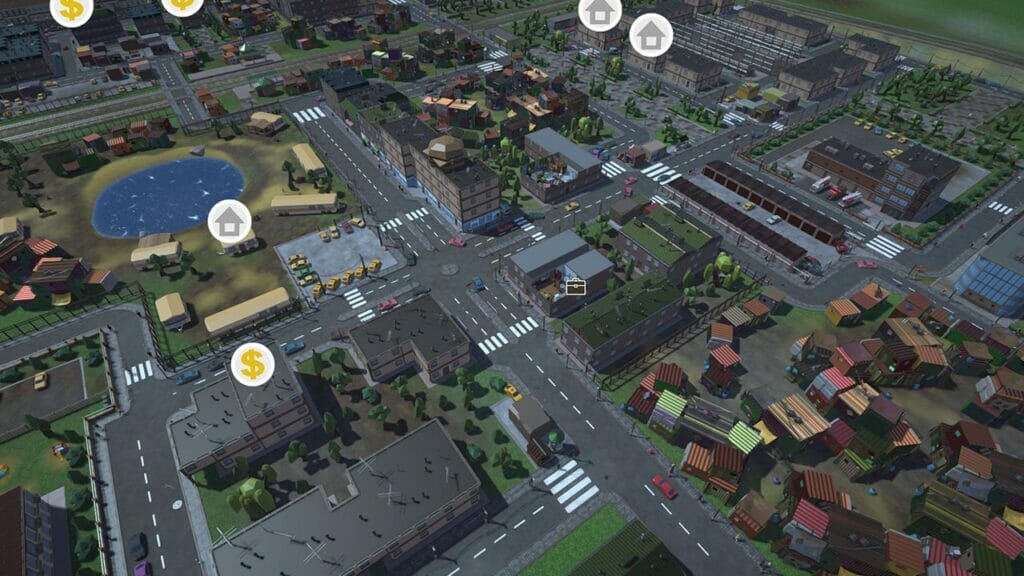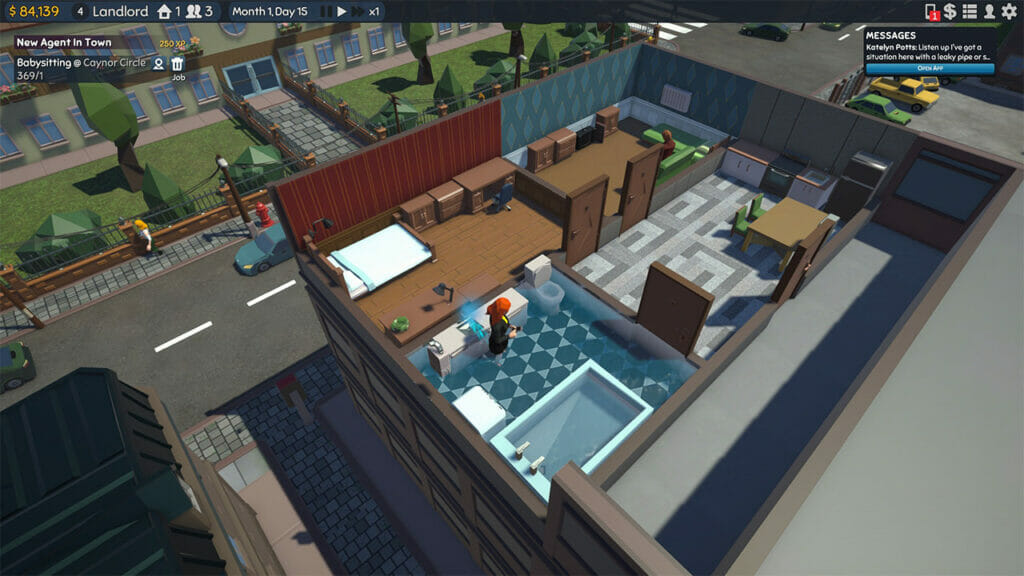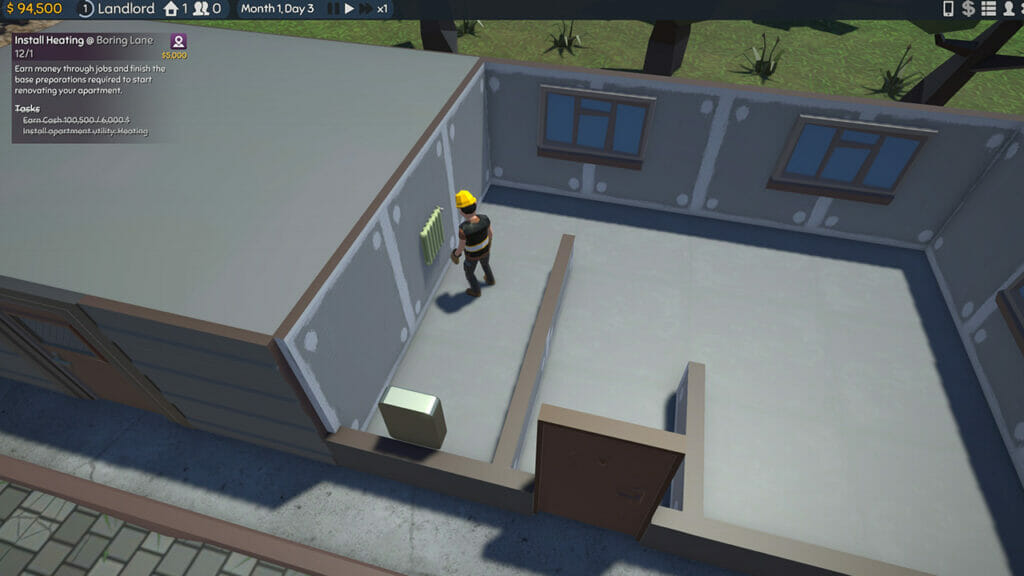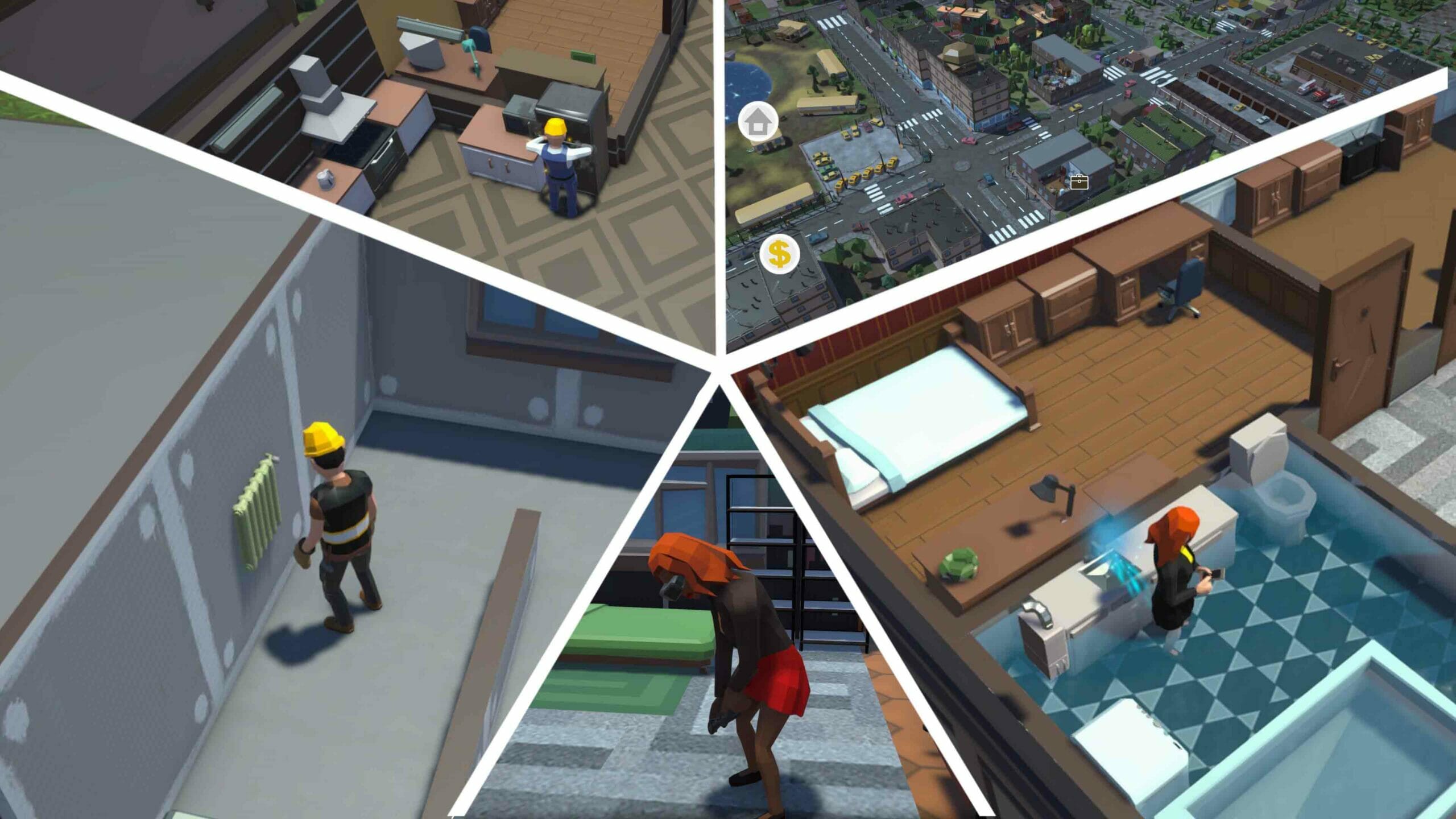Everyone’s gaming adventure started somewhere. For many gamers born in the 1990s that journey was kickstarted and spurred on by The Sims, Sim City and various Tycoon titles. Something about being a cat with ultimate power over the fishbowl spoke to players back then and continues to do well in the 2020s. Beyond all expectations, the simulation genre still brings new ideas and concepts to gamers, even when it seems impossible. A quick Google search reveals titles like “Lawnmower Simulator“, “Granny Simulator“, “Goat Simulator“, and “House Flipper“, further accentuating the point of how the simulation genre is one where no stone is left unturned.
The Tenants is yet another entry into the genre and is a game about being an interior designer, a real estate agent, exterminator, therapist and landlord all in one while getting the paycheck of none. The game is a mix of The Sims in its approach to building and design, a Tycoon game in its approach to managing financials, and Sim City in constantly being on your toes concerning natural disasters and the ever-changing needs of the tenants. Although The Tenants is still very much an Early Access title, its core concept is exciting and engaging – even with some hiccups along the way.
Let Us Turn This House Into A Home

The first mechanic players will encounter while playing The Tenants is something that will make or break the game for many, an interior design system that feels very much like The Sims in its execution. At the start of the game, the interior design jobs are straightforward. Players will take on jobs where tenants want their bathroom redone to fit with a particular aesthetic or maybe want an entire type of room added to their house. Although this system starts out bare-bones, it grows to be a pretty robust system over time.
As the game progresses and a more comprehensive range of items are unlocked, players can accept jobs with more complex and creative requests requiring careful planning and budgeting. There are limitations to the design system in The Tenants, however, with players never being given enough free range to build their own buildings and instead have to be content with adding new walls, doors and decorating.
However, for everything this system lacks, it makes up for it by tying into the other game mechanics and constantly expanding while players play, making the ever-increasing options feel well earned.
I Will Need A Bank Statement And Your Last Three Paychecks, Please

The meat and potatoes of The Tenants, and where the game sets itself apart, is in the financial side of the gameplay. The core concept is about as simple as it gets: play the game, earn capital, invest in more properties and slowly, but surely, climb the landlord’s social ladder. However, as with real-life financials, it is hardly ever that simple.
Throughout the game, players must find a balance between the need for a high-interest loan at the bank as well as juggling utilities, broker frees, and acquisition costs, among others. Alongside this, there is also a system where tenants and gamers will constantly be renegotiating the rent, trying to find the sweet spot between making a profit and being affordable.
The game also has a built-in financial tracker, which is surprisingly deep for a “casual” style game and elevates the financial aspects. Using the tracker, players can view detailed reports on the financial health of each of their properties and view the credit score of their tenants. Using this information, players can keep track of changing property values over time and build a long-term renters profile.
The Job Of A Landlord Is Never Done

Aside from the interior design portion of the game and the financial management, the final core mechanic bringing everything together is people-pleasing. During the game, tenants will experience all kinds of issues and problems, from insect and rodent infestations, faulty appliances and burst pipes to natural disasters, such as earthquakes.
On top of managing and implementing solutions for the constantly arising problems, some situations require you to stay on top of your tenant’s ever-evolving whims. Whether acting on requests for general household upgrades or installing better internet, tenants will always have something on their minds for gamers to do.
Constantly managing tenants and keeping them happy adds a lot of variety and excitement to what would otherwise be downtime in the game. None of these tasks are incredibly taxing, but they are entertaining and offer an almost “mini-gameesque” mechanic.
Tasks can be accomplished in various ways, most commonly by sending out a handy dandy uncle or by spending the cash and hiring professionals. Whichever solution is implemented must happen fast before the unskilled tenants get tired of waiting and tackle the problem themselves, leading to bigger messes and higher costs.
The Tenants is, in a word, “unique”, with few other games offering a similar mix of gameplay. The game delivers rather complex concepts in a way that never feels overwhelming, and the included financial tracker elevates the game with an educational push.
Overall The Tenants is an engaging, if somewhat unrealistic, landlord simulator and a great way to spend a couple of hours living life as a real estate mogul. It is worth keeping in how The Tenants is still an Early Access title, a status it holds for a good reason.
While the basics are solid, there are definite improvements to be made and more than a few creases to iron out. However, if the developers keep putting the work in, The Tenants promises to be a great economy management simulation game.
As far back as she can remember, Arielle has loved comics, tabletop games and staying indoors. Although she might be terrible at history, she can tell you exactly how Wanda Maximoff and Sabrina Spellman are linked. Ultimately, she works to fund her Stephen King addiction and can pretty much always be found somewhere online.


